 |
||||||||||||||||||||||||||||||||||||||||||||||||||||||||||||||||||||||||
|
|
|
|
|
|
|
|
|
|
|
|
|
|
|
|||||||||||||||||||||||||||||||||||||||||||||||||||||||||||
|
||||||||||||||||||||||||||||||||||||||||||||||||||||||||||||||||||||||||
|
Friday 7 Jun |
|
|||||||||||||||||||||||||||||||||||||||||||||||||||||||||||||||||||||||
 |
||||||||||||||||||||||||||||||||||||||||||||||||||||||||||||||||||||||||
|
Sixteenth Sessions of the Subsidiary Bodies |
||||||||||||||||||||||||||||||||||||||||||||||||||||||||||||||||||||||||
|
Bonn, Germany | 5-14 June 2002 |
||||||||||||||||||||||||||||||||||||||||||||||||||||||||||||||||||||||||
|
ENB daily reports |
||||||||||||||||||||||||||||||||||||||||||||||||||||||||||||||||||||||||
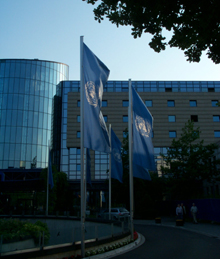 |
||||||||||||||||||||||||||||||||||||||||||||||||||||||||||||||||||||||||
|
HTML |
|
TXT |
||||||||||||||||||||||||||||||||||||||||||||||||||||||||||||||||||||||
|
5 June |
||||||||||||||||||||||||||||||||||||||||||||||||||||||||||||||||||||||||
|
|
|
|
||||||||||||||||||||||||||||||||||||||||||||||||||||||||||||||||||||||
|
6 June |
||||||||||||||||||||||||||||||||||||||||||||||||||||||||||||||||||||||||
|
|
|
|
||||||||||||||||||||||||||||||||||||||||||||||||||||||||||||||||||||||
|
7 June |
||||||||||||||||||||||||||||||||||||||||||||||||||||||||||||||||||||||||
|
|
|
|
||||||||||||||||||||||||||||||||||||||||||||||||||||||||||||||||||||||
|
10 June |
||||||||||||||||||||||||||||||||||||||||||||||||||||||||||||||||||||||||
|
|
|
|
||||||||||||||||||||||||||||||||||||||||||||||||||||||||||||||||||||||
|
11 June |
||||||||||||||||||||||||||||||||||||||||||||||||||||||||||||||||||||||||
|
|
|
|
||||||||||||||||||||||||||||||||||||||||||||||||||||||||||||||||||||||
|
12 June |
||||||||||||||||||||||||||||||||||||||||||||||||||||||||||||||||||||||||
|
|
|
|
||||||||||||||||||||||||||||||||||||||||||||||||||||||||||||||||||||||
|
13 June |
||||||||||||||||||||||||||||||||||||||||||||||||||||||||||||||||||||||||
|
|
|
|
||||||||||||||||||||||||||||||||||||||||||||||||||||||||||||||||||||||
|
14 June |
||||||||||||||||||||||||||||||||||||||||||||||||||||||||||||||||||||||||
|
|
|
|
||||||||||||||||||||||||||||||||||||||||||||||||||||||||||||||||||||||
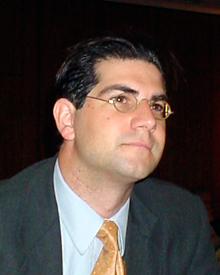 |
Friday, 7 June 2002 |
|||||||||||||||||||||||||||||||||||||||||||||||||||||||||||||||||||||||
|
COOPERATION WITH RELEVANT INTERNATIONAL ORGANIZATIONS: |
||||||||||||||||||||||||||||||||||||||||||||||||||||||||||||||||||||||||
|
||||||||||||||||||||||||||||||||||||||||||||||||||||||||||||||||||||||||
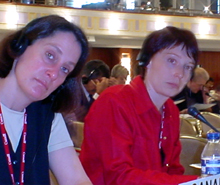 |
||||||||||||||||||||||||||||||||||||||||||||||||||||||||||||||||||||||||
|
||||||||||||||||||||||||||||||||||||||||||||||||||||||||||||||||||||||||
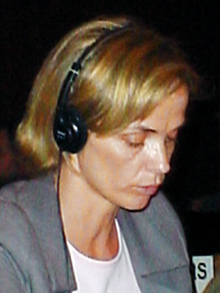 |
||||||||||||||||||||||||||||||||||||||||||||||||||||||||||||||||||||||||
|
ARTICLES 5, 7 and 8: On Friday, the contact group continued consideration of the draft document on the expedited procedure for the review for the reinstatement of eligibility to use the mechanisms. On Timing, delegates noted that a small drafting group was working on the overall timeframes. Stressing the limited scope of the review for reinstatement of eligibility, NEW ZEALAND, opposed by the EU, underscored a tight time schedule. Participants agreed to an EU proposal that Parties should give advance notice to the Secretariat to allow preparation before the request for review. The EU and INDIA, opposed by NEW ZEALAND, CANADA, AUSTRALIA and JAPAN, supported allowing extending the time for the review, to ensure thoroughness if necessary. AUSTRALIA stressed resource implications and the Party's onus for providing information. |
||||||||||||||||||||||||||||||||||||||||||||||||||||||||||||||||||||||||
|
||||||||||||||||||||||||||||||||||||||||||||||||||||||||||||||||||||||||
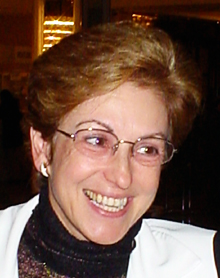 |
||||||||||||||||||||||||||||||||||||||||||||||||||||||||||||||||||||||||
|
ISSUES RELATING TO HCFS AND PCFS: Chair Thorgeirsson recalled a COP-5 decision requesting information on available and potential ways and means of limiting emissions of HFCs and PFCs, including their use as replacements for ozone-depleting substances. Several Parties stressed the important role of the IPCC and the Technical and Economic Assessment Panel (TEAP) of the Montreal Protocol in providing information on this matter. INDIA said the reduction in the use of HFCs and PFCs could impinge on developing countries' economies. The US said that actions undertaken to reduce HCFs and PFCs must not undermine the phaseout of ozone-reducing substances. SWITZERLAND encouraged a draft decision outlining actions for presentation to COP-8. The EU noted that despite their current low contribution to the total greenhouse gases, efforts were necessary to avoid significant growth in these emissions. Chair Thorgeirsson said Richard Bradley (US) would undertake informal consultations to draft conclusions on this issue. |
||||||||||||||||||||||||||||||||||||||||||||||||||||||||||||||||||||||||
|
||||||||||||||||||||||||||||||||||||||||||||||||||||||||||||||||||||||||
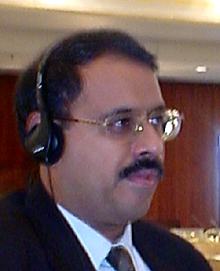 |
||||||||||||||||||||||||||||||||||||||||||||||||||||||||||||||||||||||||
|
LULUCF under the CDM: The group met in afternoon and evening sessions on Friday and an afternoon session on Saturday. Introducing a revised TOR and agenda for work to develop definitions and modalities for including afforestation and reforestation under the CDM, Co-Chair Sach stressed that the contact group needed to agree on the process, not substance at this point. Participants debated how take into consideration accounting, reporting and review aspects when developing the definitions and modalities. CANADA cautioned against moving beyond the group's mandate. The G-77/CHINA proposed inserting reference to all COP-7decisions relevant to the CDM as well as Articles 5, 7, and 8, stressing the interlinkages. On inputs, G-77/CHINA suggested compiling an options paper on modalities for accounting, reporting and review aspect, while the EU, CANADA and JAPAN preferred integrating these issues into the other options papers. The co-chairs introduced compromise text, but the issue was not resolved. CHINA proposed a separate options paper dealing with uncertainty. Co-Chair Sach urged Parties to compromise in the interest of getting on to substantive work, and the group went on to consider the revised items under the section on Process. On convening additional intersessional consultations, CANADA drew attention to possible resource constraints. Moving to the agenda for work, CHINA proposed moving up deadlines to allow Parties more time to prepare submissions. Regarding submissions on modalities, MALAYSIA stressed the need for initial exchange of views on the matter. |
||||||||||||||||||||||||||||||||||||||||||||||||||||||||||||||||||||||||
|
||||||||||||||||||||||||||||||||||||||||||||||||||||||||||||||||||||||||
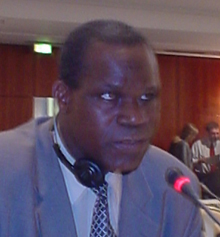 |
||||||||||||||||||||||||||||||||||||||||||||||||||||||||||||||||||||||||
|
AIJ: The contact group on the uniform reporting format (URF) for AIJ under the pilot phase completed its work on the draft revised URF (FCCC/SB/2000/6/Add.1) on Friday. Delegates agreed to several amendments to the sections on summarizing the AIJ project and on financing, and approved the draft annexes. Following informal consultations, participants approved the section on mutually agreed assessment procedures. They also inserted a sentence in the chapeau clarifying that the content provided by the revised URF is "for informational purposes only and should not be construed as adopting the underlying concepts." |
||||||||||||||||||||||||||||||||||||||||||||||||||||||||||||||||||||||||
|
||||||||||||||||||||||||||||||||||||||||||||||||||||||||||||||||||||||||
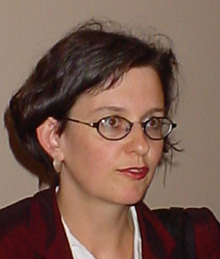 |
||||||||||||||||||||||||||||||||||||||||||||||||||||||||||||||||||||||||
|
NATIONAL GREENHOUSE GAS INVENTORIES FOR ANNEX 1: Reconvening the contact group on national greenhouse gas inventories Co-Chair Newton Paciornik (Brazil) reminded Parties of the work ahead, including, the revision of outstanding text on reporting guidelines, the common reporting format tables (CRF), and pending issues from Thursday. The EU read a proposal for a new paragraph on capturing carbon from flue gases and Co-Chair Paciornik, deferred it to pending issues. On uncertainties for reporting, CANADA said these should be quantified and reported, but not in the CRF, which compares data across parties. PERU recommended the inclusion of uncertainties, while the US stated uncertainties should fall under the NIR. The issue was unresolved. On the NIR, the Co-Chair said the EU, CHINA, PERU and US should elaborate a solution to unresolved differences. CHINA opposed a US proposal that CRF reporting tables contain key source categories, proposing that uncertainties cover all categories. Co-Chair Auden, invited Parties to reach conclusions on pending issues, by Saturday morning. A sub-group met in the evening to consider the CRF tables, with key sticking issues including table 7, on uncertainties for key sources. |
||||||||||||||||||||||||||||||||||||||||||||||||||||||||||||||||||||||||
|
||||||||||||||||||||||||||||||||||||||||||||||||||||||||||||||||||||||||
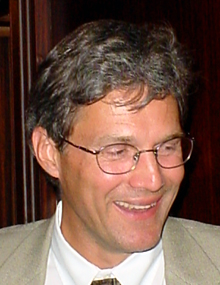 |
||||||||||||||||||||||||||||||||||||||||||||||||||||||||||||||||||||||||
|
ARTICLE 6 CONTACT GROUP: |
||||||||||||||||||||||||||||||||||||||||||||||||||||||||||||||||||||||||
|
||||||||||||||||||||||||||||||||||||||||||||||||||||||||||||||||||||||||
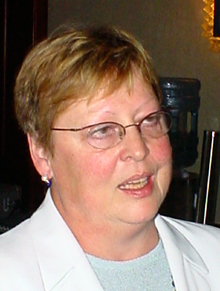 |
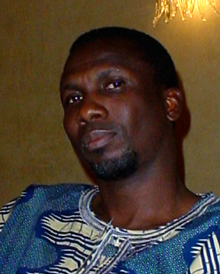 |
|||||||||||||||||||||||||||||||||||||||||||||||||||||||||||||||||||||||
|
||||||||||||||||||||||||||||||||||||||||||||||||||||||||||||||||||||||||
|
||||||||||||||||||||||||||||||||||||||||||||||||||||||||||||||||||||||||
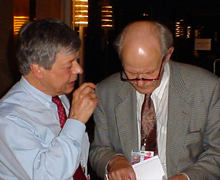 |
||||||||||||||||||||||||||||||||||||||||||||||||||||||||||||||||||||||||
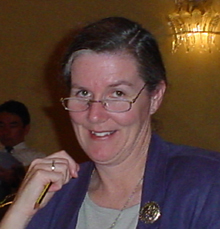 |
||||||||||||||||||||||||||||||||||||||||||||||||||||||||||||||||||||||||
|
||||||||||||||||||||||||||||||||||||||||||||||||||||||||||||||||||||||||
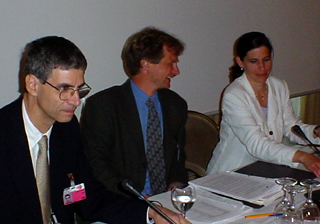 |
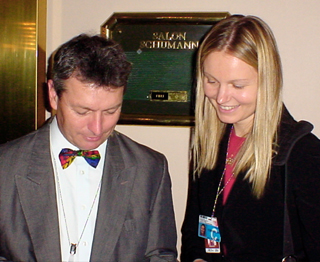 |
|||||||||||||||||||||||||||||||||||||||||||||||||||||||||||||||||||||||
|
||||||||||||||||||||||||||||||||||||||||||||||||||||||||||||||||||||||||
|
||||||||||||||||||||||||||||||||||||||||||||||||||||||||||||||||||||||||
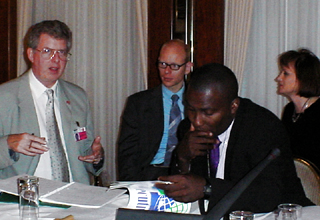 |
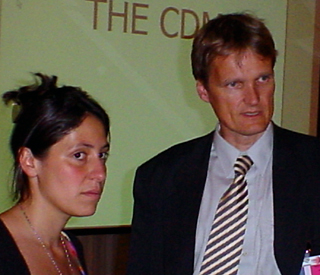 |
|||||||||||||||||||||||||||||||||||||||||||||||||||||||||||||||||||||||
|
||||||||||||||||||||||||||||||||||||||||||||||||||||||||||||||||||||||||
|
||||||||||||||||||||||||||||||||||||||||||||||||||||||||||||||||||||||||
|
||||||||||||||||||||||||||||||||||||||||||||||||||||||||||||||||||||||||
|
|
||||||||||||||||||||||||||||||||||||||||||||||||||||||||||||||||||||||||
|
Any irregularities on this page? Please mail the Digital editor |
||||||||||||||||||||||||||||||||||||||||||||||||||||||||||||||||||||||||